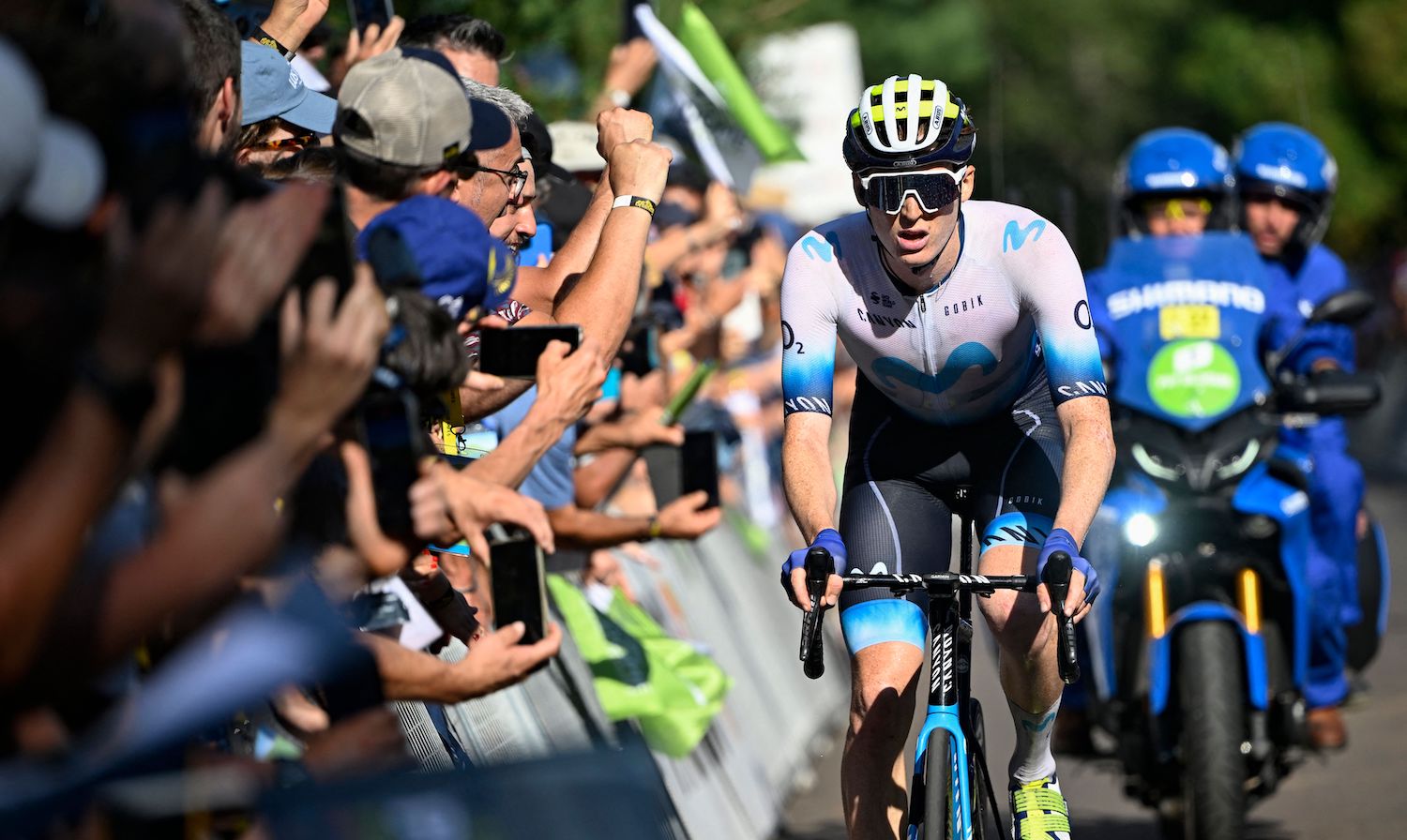To remark on Matteo Jorgenson's solitude at the end of Stage 9 of the Tour de France is almost redundant; he was on his bike, racing. Of course he was alone. What was unique about Jorgenson's bold, futile ride up the Puy de Dôme was the silence. No fans lined the road up the barren volcano, and Jorgenson's only chance of knowing that chasers were on his heels died with his radio. The soundtrack on the broadcast to Jorgenson's quiet moment of self-torture was birdsong. This was pure cycling, a brutal reminder that the essence of bike racing is suffering.
Jorgenson slipped away from the other three riders in the breakaway with 48 kilometers to the finish, slowly building up a significant advantage and slamming into the base of the mythic volcano with an 80-second buffer. The others in the break were all superior climbers, but Jorgenson—taller, more robust—was better suited to the rolling run-up to the summit finish. So the American recognized that a victory would necessarily have to be a long solo one. Sometimes this tactical gambit works, but most of the time it does not, as being alone for so long means nobody can bear any of the elements for you. But Jorgenson wanted to win, so he went alone.
It seemed his bet would pay off. Jorgenson slowly cranked his way up the climb, churning at a high cadence in a small gear as his cool expression twisted into a grimace. His advantage was dwindling, though Matej Mohoric was also visibly struggling with the shadeless, 12-percent gradient. There was no hiding out there, not after a long day in the breakaway, not on such an outrageously difficult climb.
Jorgenson's buffer only shrunk to under one minute within the final two kilometers, which is usually a big enough advantage for any rider to feel confident in winning any stage. But the Puy is a beast. The Tour hadn't been to the Puy de Dôme in 35 years because it was too remote and the road was too narrow for spectators, though the racing was so good on Sunday that fans definitely won't have to wait 35 more. Right as Mohoric faltered, as the commentators on the world feed speculated that Jorgenson was safe, on came Michael Woods. The Canadian was pushing a huge gear, dancing on the pedals in slow, grinding pursuit of the American escapee. The silence only made his pursuit for what seemed like an obvious second place more dramatic. Jorgenson still nursed a 35-second gap just ahead of the final kilometer marker, only to crack.
"I just started to feel empty with one kilometer to go," Jorgenson said after the stage. "It was just pure silence the whole time, against my own body and my own mind." Woods rode directly past Jorgenson with 400 meters to go, as the young American's legs betrayed him. Fighting to stay upright, Jorgenson was passed by Pierre Latour and then denied a spot on the day's podium by Mohoric. All that pain, and no result.
Professional cyclists at the highest level are insulated by teamwork, foaming crowds of besotted Dutch guys, and the best equipment in the world, none of which matter nearly as much as a rider's ability to suffer. Even someone like sprinter Jasper Philipsen, who's been hand-delivered into perfect position three times by Mathieu van der Poel, still has to put himself in dangerous positions and push his limits on his own to win stages. The point of the pain, in theory, is to win, though along with pain, the other omnipresent condition in cycling is losing. Out of the 150-plus riders that start a race, maybe a few dozen will mount a serious challenge for the win, and almost all of them will lose. Even the best riders in the world lose almost every race they start. The trick is being able to continue inviting more suffering even though you know the odds are always against you. This is why I think riders tend to have such a high level of respect for each other, at least when compared to other racing sports.
And how could you not respect Jorgenson's brave ride? He turned his body inside out and left gallons of sweat on the lonely road up to the Puy de Dôme, all to get passed by three riders in the final 400 meters of the stage. There's no reward for getting close, and if he wants to break through and actually win a stage, he now knows exactly how much pain it will take. "He who applauds his victor belittles him," Tim Krabbe wrote in The Rider. "Being a good loser is a despicable evasion, an insult to the sporting spirit." Jorgenson did not even have a podium from which to applaud Woods. But he does have 12 more stages at this year's Tour to hurt himself some more.






